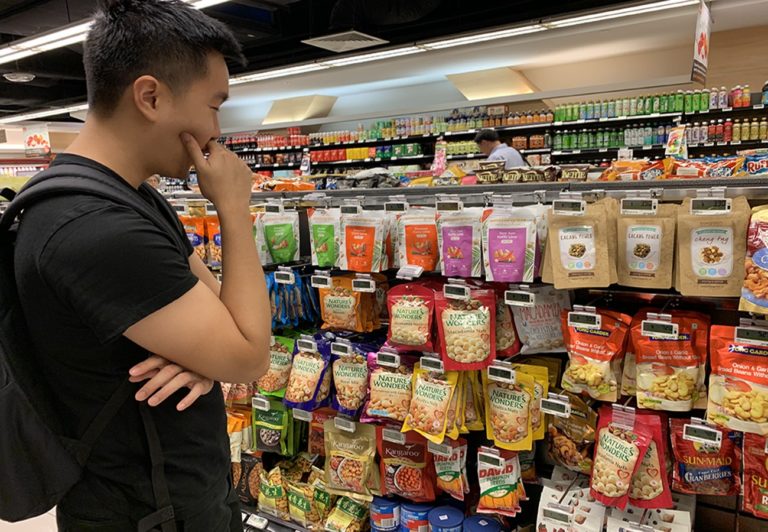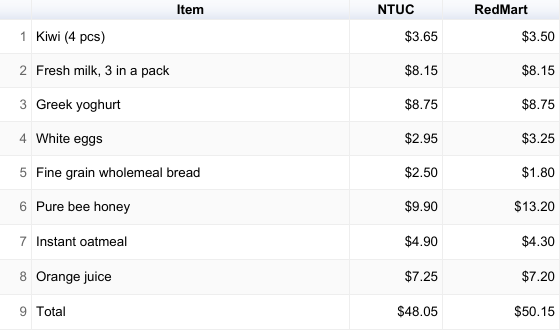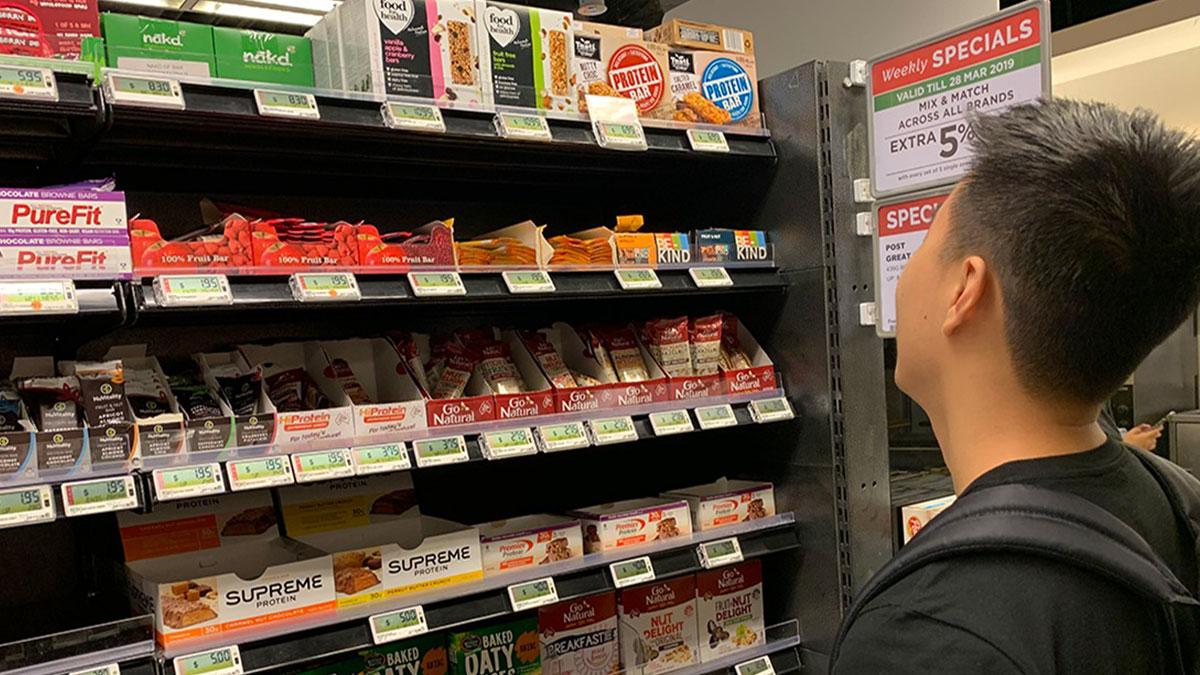Aaron, 25-years old, works on my team as a full-stack developer. After some time spent getting to know him, I discovered that he was living in a shared flat with flatmates. I also found an interesting quirk of his: he does grocery shopping at the nearest shopping mall to his place, but only ever goes to the Cold Storage on the basement level.But the thing is, the shopping mall had two supermarkets – Fairprice was also there, located several floors above the basement. I questioned him on his decision to not shop up there instead.“Well, it’s on the fourth level,” he said. “But Cold Storage is right there when I come out of the MRT station.”
“OK, but isn’t Cold Storage more expensive?” I prodded. His response came in the form of a shrug.
Whether it was because of his pure laziness or denial, that one conversation left me thinking.
Just how much is my coworker wasting because of convenience?
And how much would he save if he spends just five more minutes taking the escalator up?
Curiosity got the better of me, and I followed him (not in a creepy way, though he insisted it was “very strange”) to the supermarket after work one evening. Here’s what I found out.
The list, and my grocery shopping study
The first thing I put together was Aaron’s grocery list. We walked through supermarket aisles together as he gave me a very awkward brief on the things he usually gets every month. (I never knew you could be self-conscious about your groceries.)
- Oranges: $4.95
- Kiwi: $4.95
- Linseed meal: $3.80
- Fresh milk (3 in a pack): $8.30
- Greek yoghurt: $8.75
- White eggs: $3.55
- Protein bars: $6.95
- Fine grain wholemeal bread: $2.50
- Pure bee honey: $9.95
- Oatmeal: $4.90
- Frozen berries: $13.95
- Orange juice: $7.90
- Probiotic milk: $7.20
- Coconut water: $5.85
Total: $97.00
I learnt many things – Aaron’s dietary habits, the existence of linseed (looks like bird food), and probiotic milk (like
Yakult, but in milk form).
Then, I went upstairs and brought along the exact same grocery list. For good measure, I went online to a popular online grocery store, RedMart, to check for prices as well.
But before that, I narrowed down Aaron’s grocery list to focus more on “everyday” items rather than organic, premium products he liked to purchase. This made things easier for comparison across all three supermarkets. And so, the abridged version of his grocery list:
- Kiwi (4 pcs): $4.95
- Fresh milk (3 in a pack): $8.30
- Greek yoghurt: $8.75
- White eggs: $3.55
- Fine grain wholemeal bread: $2.50
- Pure bee honey: $9.95
- Instant oatmeal: $4.90
- Orange juice: $7.90
Total: $50.80Here’s the price list I came up with after snooping around NTUC and online, on RedMart. While I didn’t list them out, I zeroed in on the same brands to keep the comparison consistent.
[caption id="attachment_3378" align="aligncenter" width="560"]

HUGE disclaimer: my little experiment is hardly indicative of which chain had the OVERALL best prices – I didn’t compare the thousands of goods stocked in each aisle.[/caption]
The little things add up along the way
In Aaron’s list? The reigning champion was Fairprice, coming up to a total of $48.05. Just $2.75 shy of Aaron’s usual expenditure AKA
the price of convenience.
I have to admit, I was a little disappointed, I was expecting the difference to be more than $33 a year. I had envisioned myself swaggering over to Aaron at the end of this experiment and guilting him with the cost of his laziness.
But at the $2.75 revelation, he simply responded with a very (justifiable) shrug.
Meh.
But in my defense, if you put the savings in percentages, that $2.75 represented 5% off Aaron’s $50.80 bill, which sounds a little more exciting.
It was also interesting to discover that while most items had varied only by a few cents, there were some categories with larger variances – fruit and produce saw the biggest swings.
For example, Zespri brand kiwis ranged from $3.65 to $4.95 for a 4-pack. Oranges went for 5 for $2 at Fairprice, but at Cold Storage 3 oranges were priced at $4.95.
Though even then, it was difficult to give an absolute verdict, it’s difficult to do an apple-to-apples comparison with fruit at the self-pick section – produce quality from different suppliers can vary widely. Still, we can report that there were, at least, cheaper options available at Fairprice.
Another observation is that if you consume exotic items like Aaron – the probiotic milk that he drinks is ONLY available at Cold Storage. Cold Storage likely lures shoppers with specialty products, then capitalises on a shopper’s desire to get all their groceries done at a go, so shoppers end up paying (slightly) more on other generic sundries.
Unless, of course, you were hardworking enough to make multiple trips to different supermarkets to stretch your dollar whilst grocery shopping (but that’s really too much work).
But all in all, it really depends on the individual if the cost of convenience is worth $2.75. I guess even I, like Aaron, would really pay for that convenience, even if a cheaper alternative was in the same building.
However, shoppers that have larger grocery bills – such as someone purchasing groceries for a family – might want to be a bit more discerning on where they shop, and perhaps see which stores might provide the most competitive rates for the specific products they purchase.
In fact, in the past, most of us, like Aaron, would likely default to shopping at the closest grocery store to our home, instead of lugging our groceries around longer than we need to. But today, grocery stores come to you, with free deliveries (past a certain amount paid). Not to mention, shopping online makes it easier for us to compare the different prices of each grocery store.
And in that instance, it may then come down to whether we are too lazy to toggle between two internet windows.
 I learnt many things – Aaron’s dietary habits, the existence of linseed (looks like bird food), and probiotic milk (like Yakult, but in milk form).
Then, I went upstairs and brought along the exact same grocery list. For good measure, I went online to a popular online grocery store, RedMart, to check for prices as well.
But before that, I narrowed down Aaron’s grocery list to focus more on “everyday” items rather than organic, premium products he liked to purchase. This made things easier for comparison across all three supermarkets. And so, the abridged version of his grocery list:
I learnt many things – Aaron’s dietary habits, the existence of linseed (looks like bird food), and probiotic milk (like Yakult, but in milk form).
Then, I went upstairs and brought along the exact same grocery list. For good measure, I went online to a popular online grocery store, RedMart, to check for prices as well.
But before that, I narrowed down Aaron’s grocery list to focus more on “everyday” items rather than organic, premium products he liked to purchase. This made things easier for comparison across all three supermarkets. And so, the abridged version of his grocery list:
 HUGE disclaimer: my little experiment is hardly indicative of which chain had the OVERALL best prices – I didn’t compare the thousands of goods stocked in each aisle.[/caption]
HUGE disclaimer: my little experiment is hardly indicative of which chain had the OVERALL best prices – I didn’t compare the thousands of goods stocked in each aisle.[/caption]










